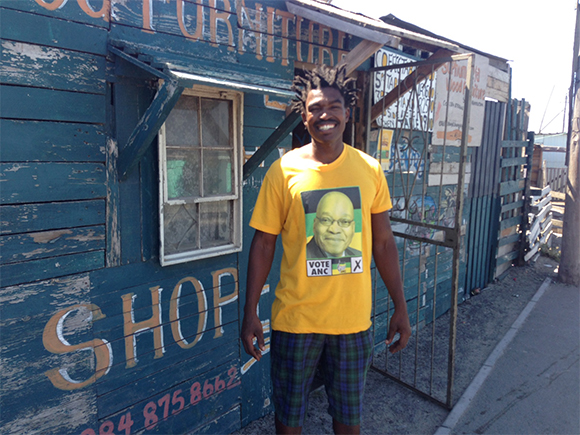University of Cape Town Graduate School of Business South Africa
Like many people around the world, Bonga wanted to start his own business. He saved money—for 11 years—to pay for training at a trade school for woodworking, before opening his own furniture-making shop. But the hurdles he faced along the way were staggering. Living in a marginal part of South Africa’s economy, how would he get a bank loan to fund his startup costs? How could he even prove his residence while living in a township without a government-recognized address?
“It’s a very, very difficult process,” Bonga said.

Global Network students spending the week at the University of Cape Town Graduate School of Business traveled into townships—South Africa’s the poorest communities—on March 3 to hear firsthand about the experiences of some of the nation’s poorest business owners. The students, divided into teams exploring healthcare, energy, housing, and finance, were sent into different areas to see what models were successful and where opportunities are available for social entrepreneurship.
Some students visited a small-scale, low-cost health clinic, carved out of a shipping container, with a certified nurse on staff. Others met with homeowners to see what approaches they have taken to improving their corrugated-iron homes.
One team looked at how residents make use of banks—and how more can do so. While many township residents are starting to use banks—there were long lines at ATMs—one barrier to greater adoption has been trust, said Thobela, one of the guides leading Yale School of Management, UCT-GSB, and University of Ghana Business School students. Bank fees—many banks charge monthly fees without minimum balances—aren’t communicated clearly to residents here, he said. Those who use mobile cellular pay services often find the service to be spotty in many townships and simply hold on to their money instead.
“If it’s not working, it’s a failure. If it’s not communicated well, that’s a failure too,” Thobela said. “People instead rely on the women in their community to hold onto their money until they need it. It does not gather interest, but they feel it is safer.”
Matthew O’Rourke is blogging this week from the University of Cape Town’s Global Network Week module on emerging markets.
